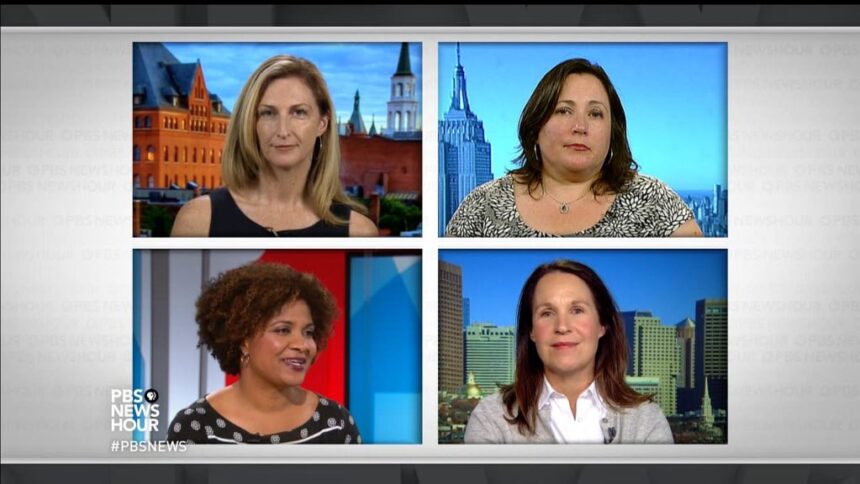JUDY WOODRUFF:
The hashtag #MeToo has millions of women sharing stories of abuse, shining a spotlight on a troubling reality in our society.
It was first used in 2007, but when actor Alyssa Milano tweeted it Sunday night to talk about sexual harassment and assault in the wake of the Harvey Weinstein story, it went viral. The hashtag was tweeted nearly a million times in just 48 hours. Facebook reported 45 percent of its users have friends who posted #MeToo, as women wrote about their experiences about the workplace and culture, and what should change.
We explore some of those issues with Fatima Goss Graves. She’s president of the National Women’s Law Center. Lisa Senecal wrote about her own experience for the online news site Daily Beast. She’s with the Vermont Commission on Women. And Melissa Silverstein is the founder of the blog and Web site Women and Hollywood.
Thank you all for joining us.
Lisa Senecal, I’m going to start with you.
You have had a personal experience with sexual harassment. That’s in part what has drawn you to this #MeToo campaign movement.
Just tell us briefly about what happened.
LISA SENECAL, Member, Vermont Commission on Women: Sure.
Like most women, I have had a number of experiences with sexual harassment, beginning with my first job, when I was 15 years old. And it’s really been a threat off and on throughout my entire professional career.
The most egregious offense was an actual assault that occurred with a male executive. Unfortunately, because of an NDA — and we can go into the evils of nondisclosures another time — but because of that, there isn’t a lot that I’m able to say about the specific event.
But the issue of sexual harassment and finally having this come to the fore, so many women are already familiar with it from being on the receiving end. And I think, especially with the #MeToo campaign, it’s been really wonderful and an eye-opening experience for men to realize just how pervasive an issue this is.

